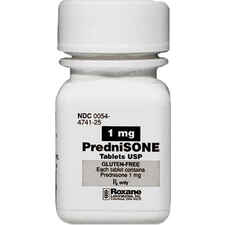Hot Spots (Flea Allergy Dermatitis)
Doctor of Veterinary Medicine

While efforts are made to answer all questions as quickly as possible, if an immediate answer is required or if your pet is in need of urgent or emergency care, contact your pet's veterinarian immediately.
Doctor of Veterinary Medicine

You will receive an answer from Dr. Lindsay and our vet/tech team as soon as possible, usually the same day.
All answers are provided for informational or educational purposes only, and are intended to be a supplement to, and not a substitute for, the expertise and professional judgment of your pet's veterinarian.
It may be necessary to consult your pet's veterinarian regarding the applicability of any opinions or recommendations with respect to your pet's symptoms or medical condition.
CloseDoctor of Veterinary Medicine

An error has occurred, please reload the page and try again.
CloseWhile efforts are made to answer all questions as quickly as possible, if an immediate answer is required or if your pet is in need of urgent or emergency care, contact your pet's veterinarian immediately.
There is no answer related to your question
What are hot spots on pets?
Hot spots (flea allergy dermatitis) is a skin disease (dermatitis) caused by your pet's allergic reaction to fleas. Derm means skin, and "itis" means inflammation, so your pet will have itchy, inflamed skin. Inflamed skin is hot, red, and itchy. Often the skin becomes smelly because yeast and bacteria grow well on unhealthy, inflamed skin. When your pet scratches the bacteria are rubbed deep into the skin and hot spots develop. Hot spots are just infected sores.Pets with flea allergy dermatitis are so sensitive they can develop hot spots if bitten just twice a month by fleas. Your pet is having an allergic reaction to flea saliva, feces and exoskeleton.
Recommended key facts about hot spots in dogs and cats
- Fleas are the number one cause of seasonal allergies.
- Being bitten twice a month is enough to cause continual hot spots in dogs and cats.
Are hot spots common in pets?
About one in five visits to a veterinary office is for skin problems, and hot spots are often the culprit. In fact, fleas cause more dermatitis than any other insect. While food allergies are the most common cause of year-round itching, fleas are the most common cause of seasonal itching.
Which pets are most at risk for hot spots?
Any pet can develop allergies to fleas, and pets with atopy (a genetic inclination to develop skin allergies) have the biggest problem. Between 3-15% of dogs have atopy; and the breeds with the biggest problems vary country to country, so you'll find a different list of British dogs with atopy than of American dogs with atopy.
American dogs with atopy include:
- Golden Retrievers
- Boston Terriers
- Dalmatians
- English Bulldogs
- English Setters
- Irish Setter
- Lhasa Apsos
- Miniature Schnauzers
- Pugs
- Cairn Terriers
- Sealyham Terriers
- Scottish Terriers
- West Highland White Terriers
- Wire-haired Fox Terriers
Cats can develop flea allergy dermatitis (hot spots), but there is no clear breed predisposition.
Flea prevention is a key step in helping to reduce your pet's risk of flea allergy dermatitis.


























